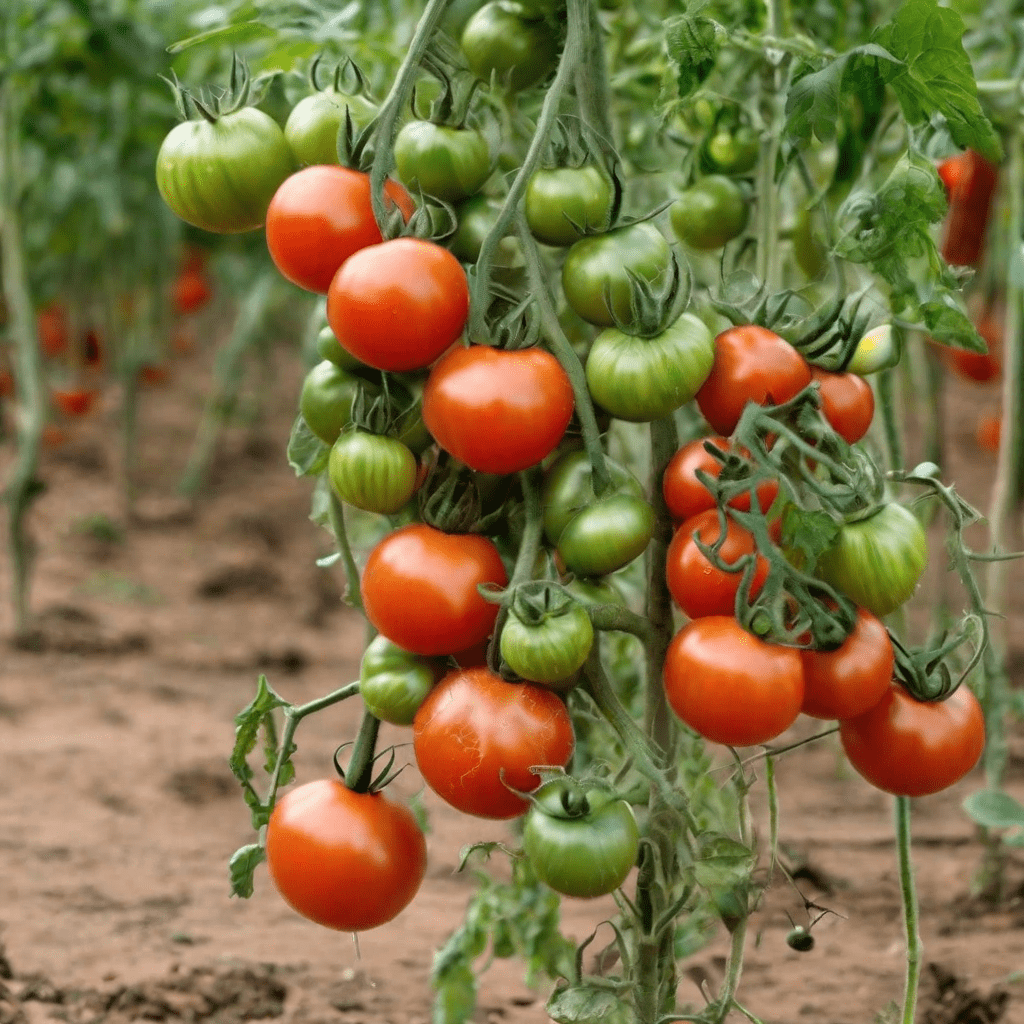Tomatoes are a popular vegetable crop grown across Nigeria. With the right techniques, it is possible to grow organic tomatoes in your backyard or farm without using synthetic fertilizers or pesticides. Here is a guide to cultivating healthy, chemical-free tomatoes:

Choose the Right Tomato Variety
When growing organically, opt for tomato varieties that are naturally disease and pest resistant. Some great options include:
- Roma – Vigorous plants produce abundant oblong tomatoes perfect for sauces and canning.
- Celebrity – A hybrid with resistance to diseases like fusarium and nematodes.
- Tylka – A Roma type resistant to tomato mosaic virus and bacterial spot.
- Champion – An early maturing variety ideal for hot climates like Nigeria’s.
Consult local agriculture extension offices on the best varieties for your area.
Start Seedlings Properly
Start seeds 6-8 weeks before transplanting in an organic sterile seed starting mix. Provide lots of light immediately after sprouting. When true leaves appear, begin fertilizing with organic fertilizers like compost tea or fish emulsion every 2 weeks. Harden off plants before transplanting.
Prepare Planting Site
Choose a sunny, well-draining spot for your tomatoes. Amend the soil with up to 2 inches of compost and an organic granular fertilizer mix before planting. This provides nutrition and improves moisture retention. Make raised beds for better drainage if soil is heavy clay.
Plant at Correct Time
Transplant seedlings when all danger of frost has passed and daytime temps are 65-85°F. Space plants 18-36 inches apart depending on variety. Stagger plantings 2 weeks apart for a longer harvest. Mulch around plants to suppress weeds, conserve moisture, and keep fruits off soil.
Water and Fertilize
Provide 1-2 inches of water per week. Use drip irrigation or soaker hoses to avoid wetting foliage. Side dress with compost tea, fish emulsion, or other organic fertilizer every 2-3 weeks. Too much nitrogen leads to excess foliage over ripe fruits.
Practice Crop Rotation
Avoid planting tomatoes in the same spot as last year to disrupt disease cycles and nutrient depletion. Rotate with crops like onions, beans, or carrots. Include cover crops like buckwheat and clover in your rotation to improve soil.
Use Staking and Pruning
Stake or trellis plants to keep them upright and prevent disease. Prune indeterminate varieties by pinching off suckers – small shoots between main stem and leaves. Remove lower leaves up to the first fruiting cluster to improve air circulation.
Control Pests and Diseases
Prevent problems by providing optimal growing conditions. Remove infested plants immediately. Control early blight and other fungal diseases with sprays of neem oil or compost tea. Deter pests like aphids, hornworms, and cutworms with Bacillus thuringiensis. Traps, physical removal, and companion planting with herbs also help.
Harvest Ripe Fruits
Begin picking fruits when they are fully colored but still firm. Use pruners for clean cuts that don’t damage the plant. Check plants daily once fruits start ripening. Place carefully in single layers in boxes or baskets. Store ripe tomatoes at 45-50°F for 2-3 weeks.
With the right site selection, planting times, crop care and pest management, you can successfully grow bountiful yields of organic tomatoes in Nigeria. Always use organic varieties and avoid synthetic chemicals for healthy fruits and soil.
